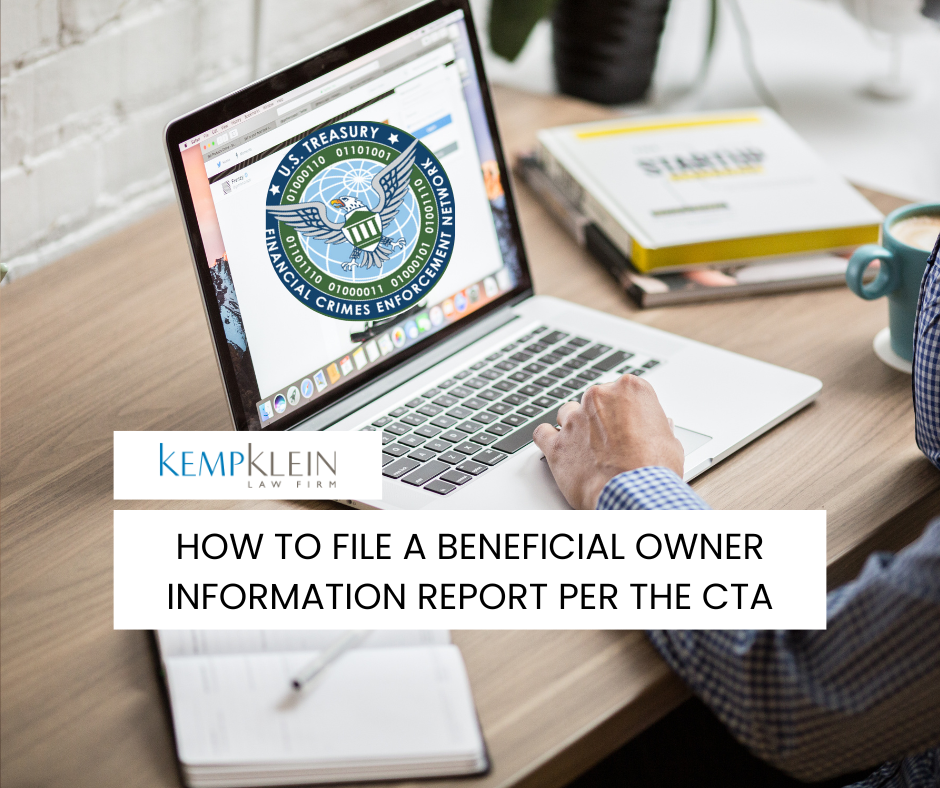Category: Uncategorized

Kemp Klein is Sponsoring Common Ground's 2025 Ride 2 End Suicide

The 2025 Ride 2 End Suicide is the 10th annual bicycle ride fundraiser to raise money for suicide awareness, prevention, education and community support.
This ride brings together survivors of suicide loss, their families and friends, mental health advocates, and local biking enthusiasts. It’s an opportunity to move for something that matters! Whether you ride for mental well-being, recovery, in memory of a loved one, or general support, the outcome is the same – to come together as a community to be there for one another and raise money for life saving suicide prevention programs.

Kemp Klein is the Finish Line Sponsor of the 2025 Ride 2 End Suicide through our Resiliency Partnership. Kemp Klein is a proud Legacy Society Benefactor for Common Ground and current member of their Circle of Hope. We have provided in excess of $200,000 in pro bono work to Common Ground. In addition to the pro bono work and financial contributions, we have hosted joint events for staff and clients of Common Ground, participated in Common Ground’s Adopt-A-Family initiative and we have held blanket making and other events to help those in need.
The Ride 2 End Suicide takes place May 17, 2025
Macomb Orchard Trail – Stony Creek Metropark (Up to 14 miles)
Wheels down at 10am
Click here for information and registration: https://ride2endsuicide.com
For more information on the Common Ground: https://commongroundhelps.org

Kemp Klein Attorney Brian Jenney is Sponsoring Marine Pollution Control's Riding Team at the 35th Zoo-De-Mack

The Zoo-de-Mackinac is a collection of outdoor enthusiasts (2,500-4,000) who want to enjoy a little physical exercise together in one of the most beautiful areas in the state of Michigan. The bike ride starts Saturday morning at The Highlands Resort (Formerly Boyne Highlands) and spans 51 miles along Lake Michigan on a paved road with very little automobile traffic. Riders pedal through rolling countryside and trillium covered forests, along sandy beaches, and are surrounded by breathtaking views of Lake Michigan from 400′ high bluffs. The ride continues on to Mackinaw City, where Arnold Transit Ferry (purchased additionally during registration) will take riders over to Mackinac Island for more festivities
From May 16-18, 2025, Team Marine Pollution Control will ride past breathtaking vistas of Lake Michigan as it raises funds for a clean water future right here in Metro Detroit with Friends of the Rouge.
Brian Jenney is a silver sponsor of the MPC Riding Team. His sponsorship empowers area residents to plant trees; monitor frog, toad, fish & bugs; participate in hands-on science at the river, build land & water trails; experience river recreation; create new rain gardens; and plant new wildlife habitat. All for cleaner air, less flooding, and a cleaner Rouge River.
For more information on this cause and how to donate: https://therouge.org
For more information on the Zoo-de-mack: https://zoo-de-mack.com
HOW TO OBTAIN A FinCEN IDENTIFIER NUMBER PER THE CORPORATE TRANSPARENCY ACT
If You Require Assistance
If you need assistance please contact us at CTAGuidance@kkue.com. We can also help if you have any additional questions regarding your company’s reporting obligations or to discuss the process of compliance. Standard Billing Rates will apply.
Disclaimer
This page does not constitute legal advice or providing legal services. This page is merely a general announcement of a new regulation. Nothing contained within this page constitutes a lawyer client relationship between Kemp Klein Law Firm and the reader. The implementation of the Corporate Transparency Act is still in development. Further, a variety of other federal and state laws and regulations may apply to your particular business activities. You may contact your legal counsel if you have specific questions.
For further information on the CTA click here. Make sure to check out the Legislative Updates section of kkue.com for Important Information and insight on major new legal developments.
Please contact your Kemp Klein Law Firm Attorney or email us at CTAGuidance@kkue.com if you have any additional questions regarding your company’s reporting obligations or to discuss the process of compliance. Standard Billing Rates will apply.
Our Corporate Transparency Act Compliance Experts
HOW TO FILE A BENEFICIAL OWNER INFORMATION REPORT PER THE CORPORATE TRANSPARENCY ACT AND FinCEN
If You Require Assistance
If you need assistance please contact us at CTAGuidance@kkue.com. We can also help if you have any additional questions regarding your company’s reporting obligations or to discuss the process of compliance. Standard Billing Rates will apply.
Disclaimer
This page does not constitute legal advice or providing legal services. This page is merely a general announcement of a new regulation. Nothing contained within this page constitutes a lawyer client relationship between Kemp Klein Law Firm and the reader. The implementation of the Corporate Transparency Act is still in development. Further, a variety of other federal and state laws and regulations may apply to your particular business activities. You may contact your legal counsel if you have specific questions.
For further information on the CTA click here. Make sure to check out the Legislative Updates section of kkue.com for Important Information and insight on major new legal developments.
Please contact your Kemp Klein Law Firm Attorney or email us at CTAGuidance@kkue.com if you have any additional questions regarding your company’s reporting obligations or to discuss the process of compliance. Standard Billing Rates will apply.
Our Corporate Transparency Act Compliance Experts
HOW TO FILE A BENEFICIAL OWNER INFORMATION REPORT (“BOIR”) PER THE CORPORATE TRANSPARENCY ACT (“CTA”)
DISCLAIMER
This page does not constitute legal advice or providing legal services. This page is merely a general announcement of a new regulation. Nothing contained within this page constitutes a lawyer client relationship between Kemp Klein Law Firm and the reader. The implementation of the Corporate Transparency Act is still in development. Further, a variety of other federal and state laws and regulations may apply to your particular business activities. You may contact your legal counsel if you have specific questions.
Kemp Klein Law Firm will not report to FinCEN on behalf of any clients unless expressly agreed to in a separate written Agreement.
Kemp Klein Vice President and Director Robert S. Zawideh Recognized by Michigan Lawyers Weekly as one of the 2024 Leaders in the Law

Kemp Klein Recently Sponsored Impact100 Oakland County's 2024 Annual Grant Awards Ceremony
Kemp Klein was an Event Sponsor of the Impact100 Oakland County 2024 Grant Awards Ceremony. Three organizations who have been making a difference in Oakland County were each awarded $97,333 grants at the event. The three organizations who were awarded grants were Hope Against Trafficking, Hospitality House Food Pantry and CARE House of Oakland County.
The 2024 Impact100 Oakland County Annual Grant Awards Ceremony took place on November 7th, 2024 at the Rust Belt Market in Ferndale, MI.
Impact100 Oakland County is an all female membership philanthropic group which brings women together to engage in impactful, large-scale giving to support nonprofits serving Oakland County. Impact100 Oakland County’s goal is to provide high-impact grants that reach under-served populations, support nonprofits, and highlight unmet needs in our community. Through grant-making, they invest in nonprofits financially and by partnering with them to familiarize themselves with their programs, services, and the communities they serve. There are over 70 Chapters of Impact100 around the globe.
For more information on Impact100 Oakland County please visit: impact100oaklandcounty.org

Kemp Klein Attorney Amanda Afton Martin and the Kemp Klein Foundation Sponsored the 4th Annual Live Out Loud - TURTLE Effect Foundation Memorial Bike Ride
The LIVE OUT LOUD Memorial Bike Ride took place in Colorado Springs, Colorado on October 19th, 2024. All trails began at the Greenland Open Space Trailhead location in Larkspur, Colorado. The event celebrates the inspiring life of Theodore “TURTLE” Wilson. Cycling was a passion of Turtle Wilson’s, and one he shared with vigor among his friends and community. TURTLE made friends around the WORLD and always strove to DO better, BE better, and to MAKE OTHERS BETTER in everything they did.
The TURTLE Effect™ Foundation is a 501(c)(3) non-profit committed to empowering talented and dedicated athletes to pursue their goals. Their mission is to perpetuate Theodore “TURTLE” Wilson’s drive to help others persevere through their challenges in order to achieve their potential and to share their own gifts with confidence in a “pay it forward” manner.
For more information on The TURTLE Effect, upcoming events and to donate please visit: https://turtleeffect.org

Sydney McMillan Supports Stage Nature Centers 2024 Nature Uncorked Annual Fundraiser
On behalf of The Kemp Klein Foundation, Sydney McMillan is supporting Stage Nature Centers Nature Uncorked Annual Fundraiser.
The City of Troy’s nature center is operated by the Troy Nature Society, a nonprofit organization that raises funds to support the programs and outdoor activities offered at the Stage Nature Center. This popular 100-acre nature preserve with two miles of walking trails and its large interpretive building are dedicated to the education of the community about the natural world. All proceeds from the event help underwrite the educational nature programs and operations of the nature center.
Nature Uncorked takes place at the Troy Community Center on Friday, November 8th, from 6-9pm.
The mission of the Kemp Klein Foundation is to provide support to charitable organizations and to promote volunteerism throughout the firm and community. The Kemp Klein Foundation is funded via proceeds from our casual Friday donations and contributions from the firm. Since its inception, the Foundation has contributed over $1,000,000 to hundreds of worthwhile causes which reflect our shared values.
For more information about this event visit: https://troynaturesociety.org/natureuncorked/https://troynaturesociety.org/
For more information about The Kemp Klein Foundation visit: https://kkue.com/kemp-klein-foundation









